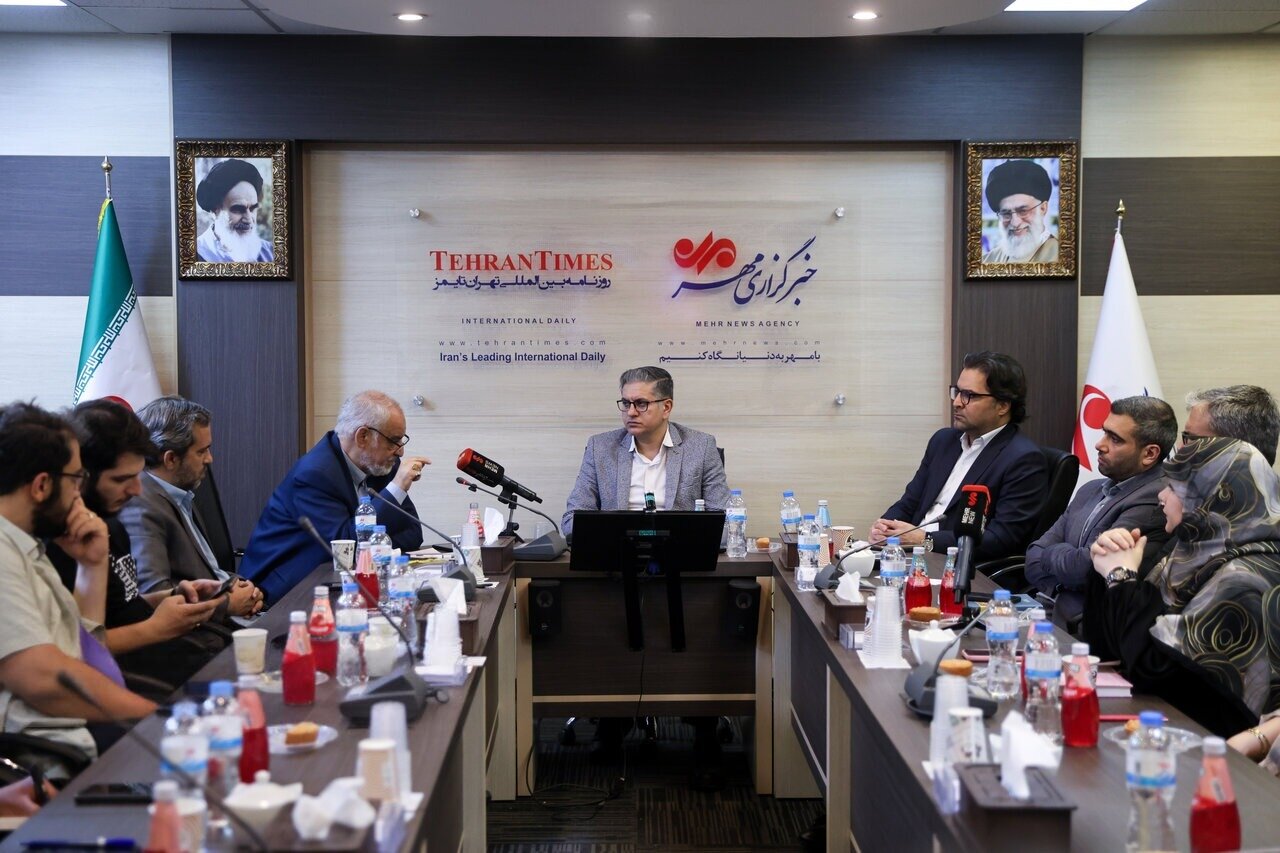TEHRAN – The Mehr Media Group hosted an international meeting titled “Hezbollah Disarmament and the Future of Lebanon” on Tuesday, uniting prominent regional experts to discuss escalating foreign-backed pressures to disarm Hezbollah and the profound implications for Lebanon’s sovereignty.
The media group, one of Iran’s leading news organizations, comprises the country’s foremost international daily newspaper, the Tehran Times, and the Mehr News Agency.
Held amid intensified U.S. and Israeli efforts to weaken the Resistance, the event underscored Hezbollah’s indispensable role in safeguarding Lebanon and confronting foreign aggression.
Since the November 2024 ceasefire, which ended a 14-month war with Israel, Hezbollah has been the target of persistent calls to disarm.
The conflict — ignited by Tel Aviv’s escalating aggression against Gaza and Lebanon, alongside Hezbollah’s principled and unwavering solidarity with Palestine following Hamas’s October 2023 operation — witnessed Israel’s devastating airstrikes and the assassination of Hezbollah Secretary General Hassan Nasrallah.
Despite the sacrifices endured, Hezbollah remains a vital shield and deterrence against Israel’s ongoing ceasefire violations, including repeated airstrikes and the continued occupation of southern Lebanese territories.
The U.S. and Saudi Arabia have exerted mounting political and economic pressure on Lebanon, conditioning reconstruction aid on disarmament.
In line with these demands, Lebanon’s cabinet approved a U.S.-backed plan on August 5 to restrict arms to state forces. Hezbollah’s Secretary General, Sheikh Naim Qassem, firmly rejected this dictate, vowing to preserve the movement’s arsenal as an essential means of defending Lebanon and countering Israeli aggression.
Mohammadreza Moradi, chief editor of the international desk at Mehr News Agency, warned at the roundtable meeting that the disarmament plan threatens Lebanon’s stability, paraphrasing Qassem’s vow to “fight like Karbala” against it. He stressed that Hezbollah’s weapons are essential to resist Israeli occupation.
Ali Ahmad, a Lebanese political researcher, criticized the current government’s alignment with U.S. interests, stating, “The government believes Resistance must end while occupation persists.” He noted that Hezbollah prevented further Israeli incursions during the September-October war, adding that the group is open to strategic dialogue but will not disarm while Israel’s aggression continues.
Ahmad Dastmalchian, former Iranian ambassador to Lebanon, framed the issue as part of a broader regional struggle, saying, “Hezbollah’s weapons are a matter of honor, rooted among the people.” He argued that U.S., Israeli, and Arab reactionary efforts to disarm Hezbollah are a strategic miscalculation that could destabilize the region.
Ahmad al-Shami, an expert from Yemen’s Al-Masirah TV, emphasized Hezbollah’s historical victories, stating, “These weapons stopped the enemy in 2000 and 2006.” He called Hezbollah’s arsenal “the honor of the nation,” warning that disarmament would enable Israel’s regional ambitions.
Mohammad Khawajoui, the Tehran-based director of the Lebanon Studies at the Middle East Strategic Research Center, described disarmament as a U.S.-orchestrated attempt to destroy resistance, noting, “Disarming Hezbollah now would be a fatal blow.” He highlighted concerns among Lebanon’s Shia community that the plan targets their security, given their proximity to Israel.
Zainb Farhat, an expert at Lebanon’s Naba TV, called the disarmament decision “purely American,” citing U.S. envoy Tom Barrack’s threats to turn Lebanon into “another Syria.” She warned of potential civil disobedience or cabinet resignations if the plan proceeds, though Hezbollah opposes internal conflict.
Mohammad Ali Hasannia, an expert on Arab world issues, traced Hezbollah’s rise to the 1980s Israeli invasions and the influence of Iran’s 1979 Islamic Revolution. He argued that disarming Hezbollah would embolden U.S. and Israeli efforts to target resistance movements in Iraq next, noting, “The Lebanese army, trained only with light U.S. weapons, cannot handle Hezbollah’s arsenal.”
Speakers were united in rejecting the disarmament push, portraying Hezbollah’s weapons as both a national and regional deterrence whose removal would destabilize Lebanon and embolden its adversaries.
